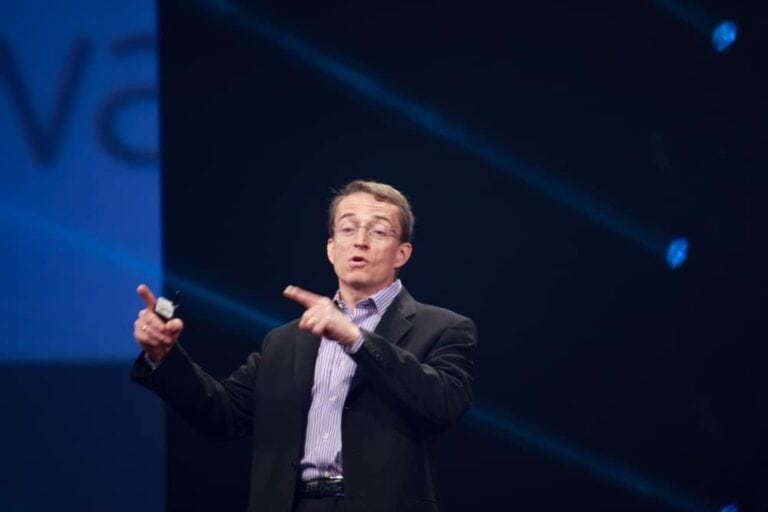Intel has just announced that its CEO, Pat Gelsinger, has stepped down and left the company, effective immediately. There are indications that Gelsinger has retired for good. Since December 1, Pat Gelsinger is no longer with Intel. His positions as CEO and on the Board of Directors have ended.
Pat Gelsinger has left chip maker Intel effective immediately after an impressive career spanning over 40 years. This is what Intel has to say about the rather sudden departure of its CEO. Because Intel is talking about a career of more than 40 years, some 34 of them at Intel, it seems that Gelsinger has chosen to retire for good. He is 63 years old, and that sounds a bit early. The big question at this point is why Gelsinger is retiring so suddenly.
Sudden departure
Gelsinger’s role at Intel is coming to a rather sudden end. He has left the company as of December 1, and no permanent replacement is lined up either. This was not planned well in advance. It is also unclear whether the board of directors asked for the departure or it’s Gelsinger’s personal choice. The fact that Intel seems to be hinting at retirement is also strange at 63. As recently as August and September, Gelsinger worked on a major rescue plan.
Gelsinger recently had to fend off some takeover attempts by competitors. This could also mean that there are differences of opinion within the board about Intel’s future. Now that Gelsinger is gone, Intel might take a completely different course in which a sale and a takeover are not off the table.
The former CEO is praised extensively in the press release. Effective immediately, David Zinsner and Michelle Johnston Holthaus will assume the role of interim co-CEOs until a suitable replacement is found. In any case, having two co-CEOs is doomed to fail.
Career of Gelsinger
Gelsinger worked for Intel from 1979 to 2009, the first 30 years of his career. During this time, he held various roles. For example, he helped design the 386 processor in the 1980s. After that, he led various departments and even served as Intel’s CTO until his departure in 2009.
From 2009 to 2012, he was a top executive at EMC, a storage vendor later acquired by Dell Technologies. EMC also owned VMware. From 2012 to 2021, Gelsinger was VMware’s CEO; under his leadership, the company experienced massive growth.
Return to Intel in 2021
In 2021, Gelsinger returned to Intel as CEO. Intel had been struggling for years and was looking for an experienced top executive to get it back on track. Under Gelsinger, Intel made major changes to become more innovative and competitive again. Taiwanese TSMC, in particular, had made things very difficult for Intel in recent years, allowing ARM and AMD chips to attack Intel’s market share.
At first, the changes led by Gelsinger seemed to pay off, but then, there was the AI revolution in late 2022. ChatGPT turned the world upside down; demand for AI chips went through the roof. NVIDIA emerged as the big winner, followed by AMD at a great distance. Intel, however, had no answer and in fact still does not have one. With that, Intel’s stock price mostly went down. More was expected from ‘Chipzilla’.
Not even close to AMD and Nvidia
With that, Intel is still in turbulent waters. In addition to the problems it already had, it now has to come up with an answer to the AI issue. That seems impossible since AI chips are closer to GPUs than CPUs. Intel is good at making CPUs but not particularly good at making GPUs.
The company’s GPUs have improved over the years, but they barely come close to those of AMD or NVIDIA. Intel is in such bad shape now that rumors are emerging that competitors may want to take over the company, or at least some of its business units. That is hugely distracting for a CEO trying to reform a company.
We’re waiting for Intel to provide more explanations or for Gelsinger to give one of his own. In any case, given Intel’s turmoil, a sudden departure of the CEO is not a positive development.
